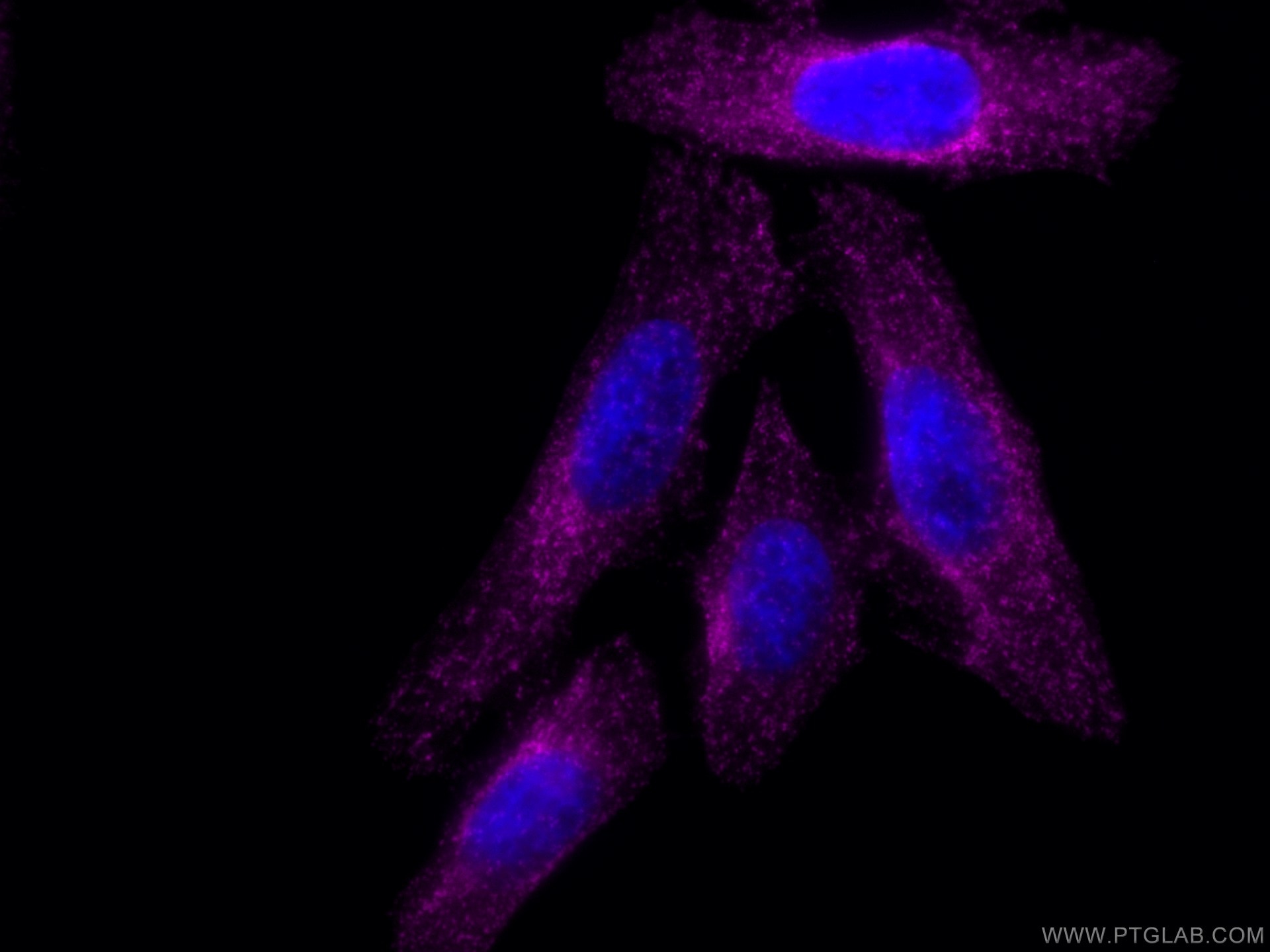Tested Applications
| Positive IF/ICC detected in | HepG2 cells |
Recommended dilution
| Application | Dilution |
|---|---|
| Immunofluorescence (IF)/ICC | IF/ICC : 1:50-1:500 |
| It is recommended that this reagent should be titrated in each testing system to obtain optimal results. | |
| Sample-dependent, Check data in validation data gallery. | |
Product Information
CL647-10852 targets CLTA in IF/ICC applications and shows reactivity with human, mouse, rat samples.
| Tested Reactivity | human, mouse, rat |
| Host / Isotype | Rabbit / IgG |
| Class | Polyclonal |
| Type | Antibody |
| Immunogen |
CatNo: Ag1299 Product name: Recombinant human CLTA protein Source: e coli.-derived, PGEX-4T Tag: GST Domain: 1-218 aa of BC019287 Sequence: MAELDPFGAPAGAPGGPALGNGVAGAGEEDPAAAFLAQQESEIAGIENDEAFAILDGGAPGPQPHGEPPGGPDAVDGVMNGEYYQESNGPTDSYAAISQVDRLQSEPESIRKWREEQMERLEALDANSRKQEAEWKEKAIKELEEWYARQDEQLQKTKANNRAAEEAFVNDIDESSPGTEWERVARLCDFNPKSSKQAKDVSRMRSVLISLKQAPLVH Predict reactive species |
| Full Name | clathrin, light chain (Lca) |
| Calculated Molecular Weight | 27 kDa |
| Observed Molecular Weight | 35-38 kDa |
| GenBank Accession Number | BC019287 |
| Gene Symbol | CLTA |
| Gene ID (NCBI) | 1211 |
| RRID | AB_2920215 |
| Conjugate | CoraLite® Plus 647 Fluorescent Dye |
| Excitation/Emission Maxima Wavelengths | 654 nm / 674 nm |
| Form | Liquid |
| Purification Method | Antigen affinity purification |
| UNIPROT ID | P09496 |
| Storage Buffer | PBS with 50% glycerol, 0.05% Proclin300, 0.5% BSA, pH 7.3. |
| Storage Conditions | Store at -20°C. Avoid exposure to light. Stable for one year after shipment. Aliquoting is unnecessary for -20oC storage. |
Background Information
Clathrin is the major protein of the polyhedral coat of coated pits and vesicles which entrap specific macromolecules during receptor-mediated endocytosis. The clathrin molecule has a triskelion shape. Each clathrin triskelion is composed of three identical heavy chains (180 kDa) and three light chains of two types, LCA (CLTA) and LCB (CLTB) (30-40 kDa). The light chain subunits are thought to regulate the formation or disassembly of clathrin coats. (PMID: 2445759; 8374173; 3563513)
Protocols
| Product Specific Protocols | |
|---|---|
| IF protocol for CL Plus 647 CLTA antibody CL647-10852 | Download protocol |
| Standard Protocols | |
|---|---|
| Click here to view our Standard Protocols |




